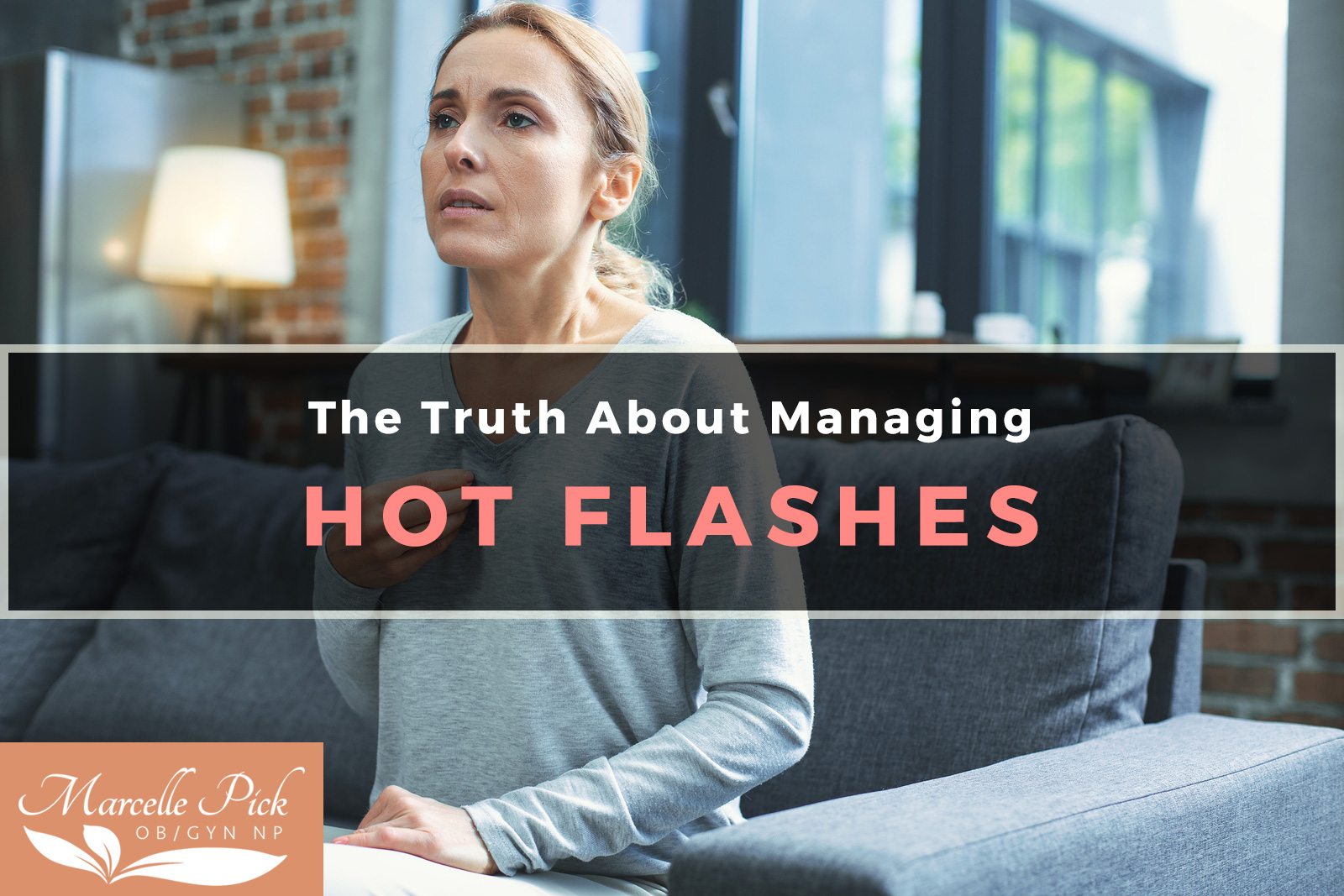Up until relatively recently, conventional medicine has had little to offer women suffering from symptoms of hormonal change. Until a woman was deemed to be officially in menopause and could be prescribed synthetic hormone therapy, she was often told that her symptoms were all in her head. Even today, women struggling with hormonal imbalance are frequently sent home with a prescription for antidepressants, rather than being offered real solutions for a very real condition.
In integrative medical circles, there has long been recognition that a transitional period of time exists before menopause, which is different for each woman, when fluctuating hormones may cause her serious distress. Thankfully, conventional medicine has caught up and we now have an official name for this passage in medical textbooks: perimenopause.
Information, Signs and Symptoms of Perimenopause
Symptoms of perimenopause can begin as early as 10–15 years before menses completely stop. Women in their late 30’s, 40’s and early 50’s may transition in and out of a perimenopausal state many times before they finally enter menopause. If you are currently experiencing symptoms such as irregular periods, heavy bleeding, hot flashes, sleep disruption, headaches and weight gain or any other extreme emotional distress, you may be relieved to know that these are all common signs of perimenopause.
Along with the more obvious changes listed above, many of my perimenopausal patients find their short-term memory impairment or a lack of focus to be very annoying. These cognitive effects of hormonal imbalance are frequently overlooked in mainstream discussion`s about perimenopause. Yet “fuzzy thinking,” and an inability to multitask can definitely be traced to your physical state, as can increased anxiety, fatigue, depression and drastic mood swings. These symptoms are actually signals being thrown up by your body to make you stop in your tracks and take notice. Women often remark on the brain fog that comes over them after childbirth, affording them only the attention span to focus on their new baby. A similar phenomenon occurs with the hormonal fluctuations leading up to menopause — only this time the miasma of your hormones is telling you to stop and pay attention to yourself!
It may be reassuring to remember that a woman’s body is always in flux, always changing, and never more so than in the years that characterize puberty and perimenopause. In the same way you can be “pubescent” you can also be “perimenopausal.” But these are just words, not a rigid definition of who you are, what your body is capable of, or who you are going to be.
During perimenopause, the ratio of estrogen to progesterone is frequently in a state of flux, which can manifest along with other symptoms as very heavy (and maybe even frightening) bleeding. In our culture, many women tend to be operating with an internal hormonal balance tipped toward the estrogen side of the scale. This tilt is often the result of a diet high in simple carbs and low in quality protein, a lack of vital nutrients and fats, and chronic exposure to environmental toxins and artificial hormones such as endrocrine disruptors. Prolonged emotional and physical stress, which I define as anything that works against your state of balance, will also upset the hormonal applecart. Today’s world is very fast-paced and disconnected – I refer to it as a eat-and-run world. So, it’s no surprise to me that younger and younger women are coming into my practice with symptoms of perimenopause and hormonal imbalance.
In some cases, women in perimenopause may have low levels of progesterone in comparison to their estrogen level. In other cases, the progesterone level is fine, but estrogen levels are too high. What’s most important to recognize is that each woman needs to be evaluated differently, preferably by a medical practitioner conversant in integrative or alternative medicine. More often than in the past, I find conventional doctors are quite willing to discuss the reality of perimenopause – but natural, long-lasting solutions are still hard to come by. Most conventional practitioners don’t believe that people can change their lifestyle and eating habits. My response is that I know and have seen that they can. And I will tell you this: no woman needs to suffer with symptoms of hormonal balance, at perimenopause, menopause, or after menopause. You can feel better and you can start right now.
Being in perimenopause does not necessarily mean that you will follow an immediate and direct path to menopause. Some women go for years in this transitional state, whereas others sail through in just a few months. What does seem to influence the severity of perimenopause symptoms is the weight of other burdens women may have placed on their bodies over the years. Poor nutrition, chronic stress, and a lack of daily exercise are three major amplifiers because they each play a significant role in the body’s ability to detoxify and maintain homeostasis. Lifestyle choices such as smoking or drinking to excess are likewise compounding factors.
Another hidden element of perimenopause symptoms is fear. Many women are terrified by the prospect of losing their biological fertility. Our youth-obsessed culture has been extremely hard on aging women, but I have witnessed the dynamic transformation that takes place in my patients. The joys of life after menopause are many and great – you just have to learn how to manage the symptoms leading up to it! Please read our article, “What I Love About Menopause – Understanding What Menopause Is” for some great insight.
After more than 20 years of helping women with their symptoms of perimenopause, I understand firsthand women’s frustration with the way healthcare is often delivered. With projections indicating that for the first time in history our children’s life expectancy may be shorter than our own, the time is ripe to make some changes in the way we care for ourselves – changes that aren’t oriented toward drugs. I’ve found that a combination approach, one that takes into account all four corners of a woman’s foundation of health, provides the most relief. That’s why I have guidelines to give women the basic tools necessary to navigate the confusing waters of perimenopause. In short: optimal nutrition, hormonal balance, mindful exercise habits, and emotional support all help in supporting symptoms of perimenopause.
By taking pharmaceutical grade nutrients, like our specially formulated supplements, and using phytonutrients as directed, our patients have taken the initial steps toward healing their bodies and restoring their natural hormonal balance. Frequently they then find the energy and will to make lifestyle and dietary changes that dramatically improve their quality of life. Many write to us to describe their transformation.
Final Thoughts
Now that you have a better understating of the symptoms of perimenopause I encourage you to read and learn more about your health with our many informative articles. Wherever you are in your journey through perimenopause, along with the symptoms you may be feeling – will ultimately influence your actions and reactions. You can take our Hormonal Health Quiz and learn for yourself what proactive steps might benefit you the most. Know that you do have the power to help yourself during this time and that we are always here to help.
For more information, please refer to our other articles in our Menopause and Perimenopause section.







